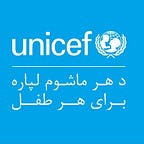Rebuilding lives: A second chance for young Afghan migrant
By Nicole Foster
HERAT, Afghanistan, 19 June 2016 — Shafiq[1] was only 13 years-old when he left for Iran. Like thousands of young Afghans in search of a better life, his family had hoped he could earn a living and help them repay their debts. Three years later, he was deported to Afghanistan, nearly US$3,000 poorer, and with a broken back he suffered in an accident at a construction site in Iran where he worked illegally.
“All my memories of Iran are of sadness and failure. During my time there, I was mobbed and robbed three times, and I could not report it to the police because of my illegal status,” Shafiq recounts.
But thanks to a UNICEF-supported pilot project that helped the reintegration of minors returning after forced deportations, Shafiq has steadily re-adjusted to life back home. He now attends school and also gained valuable vocational skills.
“I am in ninth grade now and I’ve made friends. I would like to become an engineer someday,” he says. “But first I have to dream about finishing my studies.”
A long and perilous journey
“My father owed a lot of money to many people and wanted to go to work in Iran. I told him I will go with you and help you,” Shafiq recalls of the time he decided to leave Afghanistan.
The family borrowed more money to pay for the trip to Nimruz province in the southwestern part of the country, where they found a smuggler who agreed to take them to Iran.
“We then went through Pakistan and after ten days, we reached Karaj, a small city next to Tehran. That’s when we called our family back home to pay up so that the smugglers would release us.”
Shafiq quickly got a job working illegally on a construction site, earning no more than US$10–12 a day.
“I was only 13 years-old and it was very difficult to carry heavy things, but I had to do it,” he remembers. “I worked for one year and was not able to save much money.”
In fact, the work was so perilous that he fell from a two-story building and broke his back, immobilizing him and throwing the family into an even deeper cycle of debt, as they were forced to pay for hospital bills with the little he had managed to save.
“One day later that year, a policeman showed up at the bakery where I was buying bread and asked for my papers,” he says.
He was sent back to Afghanistan the next day.
Reintegrating and building a better life in Afghanistan
Shafiq was deported via the Islam Qala Border in the western province of Herat.
After identifying him through a screening mechanism at the so-called ‘Zero Point’ area, and following various arrival processes with support provided by the Afghan Department of Refugees and Repatriation, the International Organization for Migration (IOM), and War Child UK, a UNICEF implementing partner on the ground, Shafiq was reunited with his family in the Injil District of Herat.
Upon his return, he attended a tailoring course that is part of a UNICEF-supported Vocational Training Programme run by War Child UK to help unaccompanied minors learn skills that can provide them with alternative livelihood opportunities — other than returning to Iran or migrating to another country.
Other courses include training in motorcycle repair and mechanics, mobile phone repair, and painting.
With a new set of tailoring and embroidery skills, Shafiq, when not attending school, was able to work in a local shop to help support his younger sister and mother. While they have not yet repaid their entire debt, the income helps to cover daily expenses while his father continues to work in Iran.
Shafiq for his part has no intention of going back to Iran.
“I am in ninth grade now and I’ve made friends. I would like to become an engineer someday,” he says. “But first I have to dream about finishing my studies.”
The UNICEF-supported project in Western Afghanistan has been renewed and expanded, aiming to reunite 4,800 unaccompanied and separated children with their families across the country over the next two years.
[1] Shafiq’s name was changed to protect his identity.
